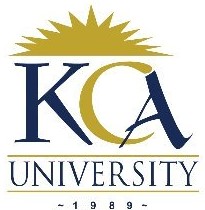
UNIVERSITY EXAMINATIONS: 2017/2018
EXAMINATION FOR THE DEGREE OF BACHELOR OF SCIENCE IN
INFORMATION TECHNOLOGY
BIT4405 EXPERT SYSTEMS
FULLTIME/PARTTIME/DISTANCE LEARNING
DATE: APRIL, 2018 TIME: 2 HOURS
INSTRUCTIONS: Answer Question One & ANY OTHER TWO questions.
QUESTION ONE
a) It is said that powerful computers, inference capabilities, and problem-solving heuristics
are necessary but not sufficient for solving real problems. Why? (4 Marks)
b) Distinguish between forward chaining and backward chaining (4 Marks)
c) What kind of mistakes might ES make and why? (4 Marks)
d) Why is it easier to correct mistakes in ES than in conventional programs? (2 Marks)
e) Identify the generic categories of expert systems applications (12 Marks)
f) Describe the motivation for developing expert systems (4 Marks)
QUESTION TWO
a) What is the purpose of conducting a Turing test (3 Marks)
b) Explain the term inferencing as used in expert systems (3 Marks)
c) Given the current status of the Web, discuss how it is changing the availability of ES
and how it is being used to embed expertise in other systems. (10 Marks)
QUESTION THREE
a) Explain the role of a knowledge engineer (4 Marks)
b) What are the major activities performed in the ES blackboard (workplace)?(3 Marks)
c) Explain the role of the expert systems and their potential benefits. (8 Marks)
d) List FIVE major Artificial Intelligence Technologies (5 Marks)
QUESTION FOUR
a) Define an Expert system (2 Marks)
b) What are the major difficulties in developing Expert systems? (4 Marks)
c) List the major components of an expert system (10 Marks)
d) Define the ES development environment and contrast it with the consultation
environment. (4 Marks)
QUESTION FIVE
a) Distinguish between Expert systems and Decision support systems (4 Marks)
b) Describe the major limitations of expert systems (12 Marks)
c) Why is speech recognition and understanding useful? (4 Marks)
